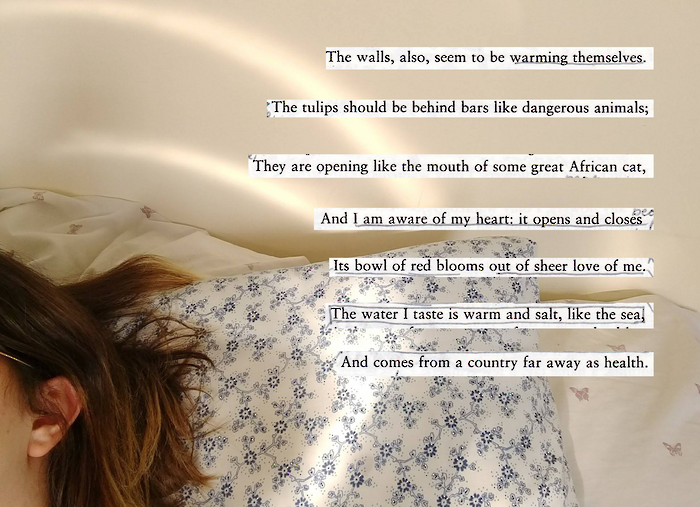Why not do all you can to help people feel comfortable?
Content notes are the best and most considerate way to enable individuals to make informed choices, argues Charley Barnard

Content note: this article contains discussion of sexual assault and ableism, and passing mentions of suicide
A content note (sometimes called a trigger warning) is a short warning that flags potentially distressing content. There is a one at the start of this article, and some faculties, such as English and MML, are currently having discussions about if and how to distribute similar warnings for course material such as lectures. This week, MML students received an email from the Faculty Reps explaining that they were trying to “gauge student opinion on introducing content notes for lectures, following the English Faculty's guide for best practice.” I believe that students need these content notes. Students deserve to be warned in advance of discussions they might find difficult so that they can make the appropriate concessions to keep themselves safe from any emotional distress.
"If there is one simple thing you can do in order to make someone’s life a little less distressing, why not do it?"
People (including the Dean at the University of Chicago in 2016), argue that giving content notes is wrapping people up in cotton wool and failing to prepare them for the “real world”. Adults should be exposed to content which strengthens their resolve, and it’s not helpful to simply avoid difficult situations. However, in the real world, I am very rarely in situations where I have to listen to discussions that force me to think in depth about my trauma, but am unable to leave. In my day to day life, I can subtly slip out of difficult conversations. This is different in a lecture hall or class, where there is often pressure to stay put, which may be exacerbated by other mental health problems or social conventions. I would ask those who are against content notes this: if there is one simple thing you can do in order to make someone’s life a little less distressing, why not do it?
My own assault happened six years ago now. I consider this wound to be more healed than it is raw, but I know it will never be completely fixed, and I will never be the same person that I was before it happened. In most contexts, I can be part of conversations about assault and sexual violence, like writing this article, but in others, it’s not okay. I once was in the middle of a lecture hall, in the middle of a row, part-way through the hour, when the lecturer paused briefly to warn her audience: “Oh, content note, I’m going to be talking about some really violent sex.” This was not enough warning. Giving content notes isn’t going to stop people going to lectures. What is is going to do is stop people being in the situation I was: trapped by people’s bodies, exposed, listening to a description of sexual violence for which I needed more than a just few seconds to prepare myself.
"Content notes are considerate for everyone, not just those of us with a diagnosis and lived experience of trauma"
In my experience, people know how to manage their own triggers, and they know what works for them. When you give someone a content note, you are giving them a tool with which they can keep themselves safe. They can sit near an exit, let their friends know what’s going on in advance, or bring things to ground themselves, such as a hot drink, headphones, or something comforting to fiddle with (remember fidget spinners? Those are actually incredibly helpful!). In some cases, they can choose not to go to the lecture because their mental health doesn’t allow them to, much the same as people do if they’re physically ill.
But warnings are also necessary for people who have not experienced the distressing things being discussed. A person doesn’t need to have direct experience of a trauma for it to be upsetting. Some conversations just take bracing for. Even if I hadn’t been through assault myself, discussions about sexual violence, which reminds me how weak my body is, are at best uncomfortable and at worst incredibly triggering. Discussions about mental health and suicide require some mental preparation, no matter whether you have directly experienced them. Content notes are considerate for everyone, not just those of us with a diagnosis and lived experience of trauma.
Content notes normalise talking about things which are difficult for us and show that it is acceptable to take steps to mitigate this. Normalisation is, in my opinion, one of the most valuable things we can do to promote mental health. We need to normalise content notes, yes, but this is just the first step. We also need to normalise other forms of reasonable adjustments. To give an example: lectures must be recorded as the standard rather than the exception in humanities subjects. In the context I’ve been describing, recorded lectures would allow those who feel unable not to attend certain sessions in favour of learning the content in their own time and space, with the freedom to skip any emotionally-difficult bits. You can’t fast-forward real life. However, recorded lectures also make allowances for anyone who has a mental or physical disability that means they can’t make it into the faculty, such as a chronic fatigue flare-up or a depressive episode.
Giving content notes is just one step towards creating a culture of consideration. This is not a snowflake culture, but one where people’s experiences and abilities are taken into account at every opportunity and not just when they are asked to, as is currently my experience with content notes. I believe that giving content notes promotes a society that is less fundamentally ableist – meaning it is not built on the assumption that the only people living within it will be able-bodied and mentally healthy. It’s this kind of policy change that can lead to a change of attitude. The more aware we all are of a need for content notes, the more likely we are to be considerate outside of lectures and make this world a better place.
 Comment / Plastic pubs: the problem with Cambridge alehouses 5 January 2026
Comment / Plastic pubs: the problem with Cambridge alehouses 5 January 2026 News / Cambridge academics stand out in King’s 2026 Honours List2 January 2026
News / Cambridge academics stand out in King’s 2026 Honours List2 January 2026 News / Cambridge businesses concerned infrastructure delays will hurt growth5 January 2026
News / Cambridge businesses concerned infrastructure delays will hurt growth5 January 2026 News / AstraZeneca sues for £32 million over faulty construction at Cambridge Campus31 December 2025
News / AstraZeneca sues for £32 million over faulty construction at Cambridge Campus31 December 2025 Interviews / You don’t need to peak at Cambridge, says Robin Harding31 December 2025
Interviews / You don’t need to peak at Cambridge, says Robin Harding31 December 2025









